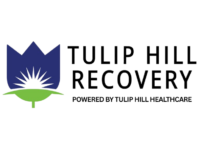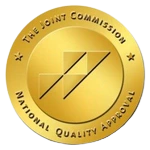Partial Hospitalization Programs (PHP) vs. Intensive Outpatient Programs (IOP)
When considering addiction treatment in Tennessee, many people weigh the choice between a Partial Hospitalization Program (PHP) and an Intensive Outpatient Program (IOP). While both offer structured support for recovery, the level of intensity and time commitment can vary significantly.
A PHP, or Partial Hospitalization Program, provides full-day treatment without requiring an overnight stay. It’s one of the most intensive forms of outpatient care, typically involving 5 to 6 days a week of therapy, counseling, and psychiatric support.
PHP is ideal for individuals who need ongoing, focused care but are stable enough to live at home or in a sober living residence.
It’s especially beneficial for those stepping down from residential treatment or managing co-occurring mental health conditions.
An IOP, or Intensive Outpatient Program, offers more flexibility.
Treatment is scheduled several days a week—usually 3 to 5 days—with sessions lasting 3 to 4 hours per day. IOPs allow clients to maintain work, school, or family commitments while still receiving therapeutic support.
Understanding the difference between PHP vs. IOP is key to choosing the right level of care. Both can be effective, but your current needs, home environment, and recovery goals will help determine the best fit.
Whether you’re looking for addiction treatment in Murfreesboro, a program close to Nashville, or support elsewhere in Tennessee, knowing the distinctions between Partial Hospitalization Programs vs. Intensive Outpatient Program options can guide you toward a healthier future.
Who Is PHP in Murfreesboro Best For?
A PHP in Murfreesboro is often the ideal next step for those transitioning out of residential rehab or completing a medical detox.
It offers the structure and clinical intensity of inpatient treatment, without the need to stay overnight. That makes it perfect for those who need a high level of support but are ready to begin re-engaging with everyday life.
PHP is especially well-suited for people who are dealing with co-occurring mental conditions such as anxiety, depression, PTSD, or bipolar disorder. These individuals benefit from daily therapeutic engagement, psychiatric support, and a structured environment where they can continue healing with professional guidance.
This level of care is also ideal for someone who may not need 24/7 supervision but still requires comprehensive treatment.
Clients attend full-day sessions five days a week, participating in individual and group therapy, trauma-informed care, and skill-building exercises.
While in PHP, they can live at home or in a nearby sober living residence.
Whether you’re seeking help through a Nashville-area PHP rehab or looking for a Tennessee PHP treatment program that combines structure with flexibility, Tulip Hill Recovery’s Partial Hospitalization Program in Murfreesboro provides the kind of focused care that helps clients make sustainable progress toward long-term sobriety.
Who Might Benefit More from IOP in Nashville?
For those who are further along in their recovery journey—or whose circumstances allow for more independence—an IOP in Nashville might be the better fit.
An Intensive Outpatient Program in Tennessee offers structured treatment while allowing clients to continue living at home and managing work, school, or family obligations.
IOP is best for individuals with mild to moderate substance use issues, a stable and supportive home environment, and strong internal motivation to maintain sobriety. It’s also an excellent option for clients transitioning from more intensive care, like a PHP, who are ready for a step-down in time commitment but still need ongoing support.
During IOP, clients typically attend treatment 3 to 5 days per week for several hours per session, engaging in group therapy, individual counseling, relapse prevention, and mental health support as needed.
The flexibility of IOP makes it easier for people to apply recovery skills in real-life settings while staying connected to professional guidance.
Whether you’re in Nashville, Murfreesboro, or anywhere else in Middle Tennessee, a well-structured Murfreesboro outpatient treatment plan can give you the tools to stay accountable while rebuilding your life in sobriety.
What Does a Typical Day in PHP Look Like in Tennessee?
A Partial Hospitalization Program in Tennessee offers a highly structured daily schedule designed to provide the same level of therapeutic intensity found in residential rehab, without requiring overnight stays. At Tulip Hill Recovery’s PHP in Murfreesboro, clients engage in full-day treatment, typically totaling 30 or more hours of therapy each week.
Depending on the client’s unique treatment plan, each day includes a combination of individual therapy, group counseling, and medication management.
Experienced clinicians lead these sessions and focus on addressing the root causes of addiction, developing coping strategies, and supporting mental health stability.
Clients also participate in trauma-focused therapy, including modalities like CBT (Cognitive Behavioral Therapy) and DBT (Dialectical Behavior Therapy), which are evidence-based approaches proven to help manage emotions, reduce cravings, and prevent relapse.
Educational workshops and life skills groups are woven into the daily routine, empowering clients to build a strong foundation for life after treatment.
Whether someone is recovering from alcohol use disorder, opioid addiction, or a co-occurring mental health condition, our Tennessee addiction care model ensures that each client receives personalized, compassionate support within a predictable, healing environment.
A Partial Hospitalization Program in Tennessee is more than just treatment—it’s a pathway to lasting change.
How Is an IOP Schedule Different from PHP?
Unlike PHP’s full-day structure, an Intensive Outpatient Program (IOP) offers a more flexible schedule that fits around everyday life.
At Tulip Hill Recovery, our IOP in Murfreesboro, TN, is typically held 3 to 5 days per week, with sessions lasting 3 to 4 hours per day. This allows clients to maintain work, school, or family responsibilities while continuing to receive clinical support.
While less time-intensive than PHP, IOP still provides access to many of the same therapeutic services, including group therapy, individual counseling, psychiatric care, and relapse prevention planning.
Clients also participate in workshops focused on emotional regulation, stress management, and healthy relationships.
For those in Nashville or Murfreesboro who are further along in their recovery journey or need a lower level of care, an Intensive Outpatient Program in Tennessee offers a balanced approach. It gives clients the chance to apply what they’ve learned in real-world settings while staying anchored in a supportive clinical environment.
Whether you’re stepping down from PHP or starting with outpatient care, the flexibility and accessibility of an IOP schedule in Tennessee make it a practical and effective choice for many individuals seeking long-term sobriety.
Related Blog Resources
At Tulip Hill Recovery, we believe that education is a powerful tool in recovery. To help you better understand the effects of addiction and the path to healing, we’ve created several in-depth resources you can explore:
What Role Does Mental Health Play in Choosing PHP or IOP?
At Tulip Hill Recovery, we specialize in dual diagnosis treatment in Tennessee, addressing both addiction and mental health challenges together.
A Partial Hospitalization Program is typically better suited for individuals dealing with more severe mental health symptoms.
This includes conditions like PTSD, bipolar disorder, or major depressive disorder, where daily therapeutic intervention, medication management, and close clinical monitoring are essential to maintaining stability.
If someone’s mental health is more stable or already being effectively managed, an IOP may be an appropriate level of care. It still provides access to therapy and psychiatric services, but with less intensity and a reduced time commitment.
In Murfreesboro and across Middle Tennessee, Tulip Hill Recovery ensures that both your mental health and substance use concerns are treated together, because healing the whole person leads to lasting recovery.
What Are the Cost Differences Between PHP and IOP?
When comparing PHP vs. IOP, cost is a key factor for many individuals seeking affordable addiction treatment in Tennessee.
Because a Partial Hospitalization Program (PHP) involves more therapy and clinical oversight each week, it typically has a higher price tag than IOP. The increased time commitment—up to 30+ hours per week—translates to more comprehensive services and staffing needs.
In contrast, an Intensive Outpatient Program (IOP) requires fewer hours (typically 9–15 hours/week), making it a more budget-friendly option for those who still need therapeutic support without the full-day structure.
Fortunately, many insurance providers help cover both levels of care.
At Tulip Hill Recovery, we accept BCBS, Anthem, Aetna, and other major insurance plans. Our team offers fast, confidential insurance verification to help you understand your benefits before starting treatment.
Whether you’re exploring insurance for PHP rehab or looking into IOP costs in Nashville, we’ll work with you to find a plan that makes high-quality care accessible and sustainable throughout your recovery.
Can You Stay at Home During PHP or IOP in Murfreesboro?
When weighing your options between inpatient and outpatient rehab, it’s important to look beyond the surface. The right program should match your unique circumstances, needs, and long-term recovery goals. Here are some key factors to think about:
- Level of Structure Needed: If you need full-time care with no outside distractions, inpatient rehab provides 24/7 structure and support. If you can manage treatment alongside daily responsibilities, outpatient rehab might be a better fit.
- Support System at Home: A strong, sober support system—like family, friends, or roommates—can make outpatient rehab successful. If your home environment is unstable or triggers substance use, inpatient care offers a safe, focused space to heal.
- Mental Health Needs: If you have a dual diagnosis (both addiction and a mental health disorder like depression, PTSD, or anxiety), inpatient rehab often provides more intensive therapy and psychiatric support under one roof.
- Financial Considerations: Insurance plans may cover all or part of either type of program, but inpatient rehab typically costs more due to housing, meals, and 24/7 staffing. Outpatient programs are generally more affordable, and many centers (including Tulip Hill Recovery) offer payment plans to help make treatment accessible.
- Long-Term Recovery Goals: Some individuals need an immersive reset to fully step away from harmful environments and habits, making inpatient rehab ideal. Others may be ready to slowly reintegrate into daily life while building new skills and habits in outpatient treatment.
Taking the time to carefully consider these factors can help you choose the program that sets you up for lasting success.
Yes, Your Insurance Covers Detox and Rehab Treatment.
Which Program Is Right for You: PHP or IOP?
Choosing between PHP and IOP in Tennessee depends on your current needs, resources, and stage in the recovery process.
Both programs can be incredibly effective, but each offers a different level of structure and intensity.
If you’re facing a moderate to severe addiction, especially with recent relapse or co-occurring mental health conditions, a Partial Hospitalization Program (PHP) may be the best fit. PHP offers a structured, full-day schedule and is ideal for those who need consistent support after detox or residential care.
On the other hand, if you have a stable support system at home, are managing work or family responsibilities, and need a flexible schedule, an Intensive Outpatient Program (IOP) might be the right choice. It allows you to continue healing while staying connected to your daily life.
At Tulip Hill Recovery, we offer some of the best rehab programs in Murfreesboro.
We offer personalized assessments to help you decide which path makes sense for your recovery. Whether you’re considering PHP or IOP in Nashville or anywhere in Middle Tennessee, we’ll guide you toward the level of care that fits your goals and lifestyle.
Get Directions to Tulip Hill Recovery
Staying in the same environment where addiction originally develops can make it harder to break old patterns. Seeking addiction treatment away from home can be one of the best decisions for your long-term recovery.
Benefits of Going to Murfreesboro for Rehab:
- Privacy & anonymity—stepping away from familiar surroundings allows individuals to focus on healing without outside pressures.
- Fewer local triggers—avoiding the same social circles and environments that contributed to substance use can reduce the risk of relapse.
- A fresh start—being in a new setting can shift perspective and help individuals fully commit to the recovery process.
Start Drug and Alcohol Rehab Today at Tulip Hill Recovery
If you’re unsure whether PHP or IOP is the right next step, we’re here to help.
At Tulip Hill Recovery, our experienced team provides personalized assessments to match you with the care that fits your needs, goals, and lifestyle. Whether you’re looking for PHP or IOP in Murfreesboro or need flexible options near Nashville, we’ll guide you every step of the way.
We specialize in both Partial Hospitalization Programs and Intensive Outpatient Programs, offering compassionate, trauma-informed addiction care across Middle Tennessee.
Call us today at 629-201-7877 to speak with an admissions specialist, or verify your insurance online in just minutes.
Start PHP or IOP in Tennessee today. Get the help you need—right here in Murfreesboro or the greater Nashville area.
Frequently Asked Questions about PHP and IOP
-
PHP (Partial Hospitalization Program) is a structured day-treatment program for addiction or mental health care. Patients attend treatment during the day (but live at home or in sober living) — no overnight stay required.
-
IOP (Intensive Outpatient Program) is less intensive than PHP but more structured than standard outpatient therapy. It offers regular therapy sessions while allowing patients to continue daily life (work, school, family, etc.).
| Program | Typical Time Commitment / Intensity |
|---|---|
| PHP | ~ 4–6 (sometimes 6–8) hours/day, 5–7 days/week. Very structured. recoverysalem.com+2Arrowhead Behavioral Health+2 |
| IOP | ~ 2–4 (some sources say 3–4) hours/day, 3–5 days/week. More flexible. Ethos Wellness+2Clive Behavioral Health+2 |
Because of the higher time and therapeutic intensity, PHP can resemble a “day-hospital” level of care — more intensive than typical outpatient therapy, but without overnight stay.
Both programs typically include many of the same core components:
- Individual therapy, group therapy, and sometimes family therapy or psychoeducation.
- Relapse prevention planning, coping skills training, behavioral therapy, and other evidence-based modalities.
- Medical/psychiatric oversight — more likely (and more frequent) in PHP than IOP, especially if medication management or detox stabilization is needed.
PHP is often best when someone:
- Needs a high-level of support and structure but doesn’t require 24/7 inpatient care.
- Is experiencing severe addiction symptoms, co-occurring mental health disorders, relapse risk, or withdrawal/medication needs that require more oversight than standard outpatient care.
- Requires consistent therapy and medical oversight during the day, while still able to return home at night.
- Is transitioning out of inpatient/residential treatment and still needs structured care to stabilize and begin reintegration.
IOP tends to be appropriate when someone:
- Has milder or moderate addiction symptoms, or has already completed a more intensive program (like PHP or inpatient) and needs ongoing care.
- Has a stable home environment and support system, allowing them to manage daily responsibilities while undergoing treatment.
- Needs flexibility to balance treatment with work, school, family, or other obligations.
- Is focused on relapse prevention, ongoing therapy, and integration of recovery tools into daily life rather than stabilization or crisis management.
Yes. Often treatment starts at a higher-intensity level (PHP) and transitions (“steps down”) to IOP as patients stabilize and their care needs lessen. Conversely, if someone in IOP relapses or requires more support, stepping up to PHP may be recommended.
Deciding between PHP and IOP depends on factors such as:
- Severity of addiction or mental health symptoms (withdrawal risk, co-occurring disorders, frequency/severity of use)
- Support available at home — stability, family or social support, housing environment
- Ability to commit time — whether daily, full-day attendance (PHP) is feasible, or if a more flexible schedule (IOP) is needed
- Need for medical/psychiatric supervision — detox stabilization, medication management, co-occurring mental health conditions
Typically, a clinical assessment by licensed professionals will guide which level of care is most appropriate.
Yes. Both PHP and IOP are evidence-based levels of care. They offer structured therapy, relapse-prevention strategies, and support, and have helped many individuals achieve and maintain recovery. The “right” choice depends on individual needs, stability, and support.
-
IOP — yes, often manageable alongside work, school, or family responsibilities because of its flexible, part-time schedule.
-
PHP — less likely, because of the more intensive, near-full-day commitment; PHP is more suitable for those who can commit daytime hours to treatment.
Before enrolling, consider asking:
What is the weekly schedule (hours, days) for PHP vs IOP at this facility?
What therapies and services are included (individual, group, family, medical/psychiatric care, medication management)?
How flexible is the program (can I continue working or studying)?
What level of supervision and support is available (especially for withdrawal, co-occurring disorders)?
What is the recommended criteria for entry or transition between levels (e.g., when to start PHP vs IOP or when to step down)?
Start Your Journey to Healing Today

Call or message us

Free assessment

Insurance check

Choose a start date
Get Family Support Now
Supporting Families Through Recovery
We understand addiction affects the whole family. Our comprehensive family program helps rebuild trust and restore relationships.
Weekly Family Therapy Sessions
Educational Workshops
Support Groups
Communication Skills Training
 |
Medically Reviewed By:
Board-Certified Psychiatrist and Addictionologist
|
 |
Clinically Reviewed By:
Board Certified Clinical Social Worker
|
Our Verifications & Affiliations
Yes, Your Insurance Covers Detox and Rehab Treatment.
Get Family Support Now
Supporting Families Through Recovery
We understand addiction affects the whole family. Our comprehensive family program helps rebuild trust and restore relationships.
Weekly Family Therapy Sessions
Educational Workshops
Support Groups
Communication Skills Training












